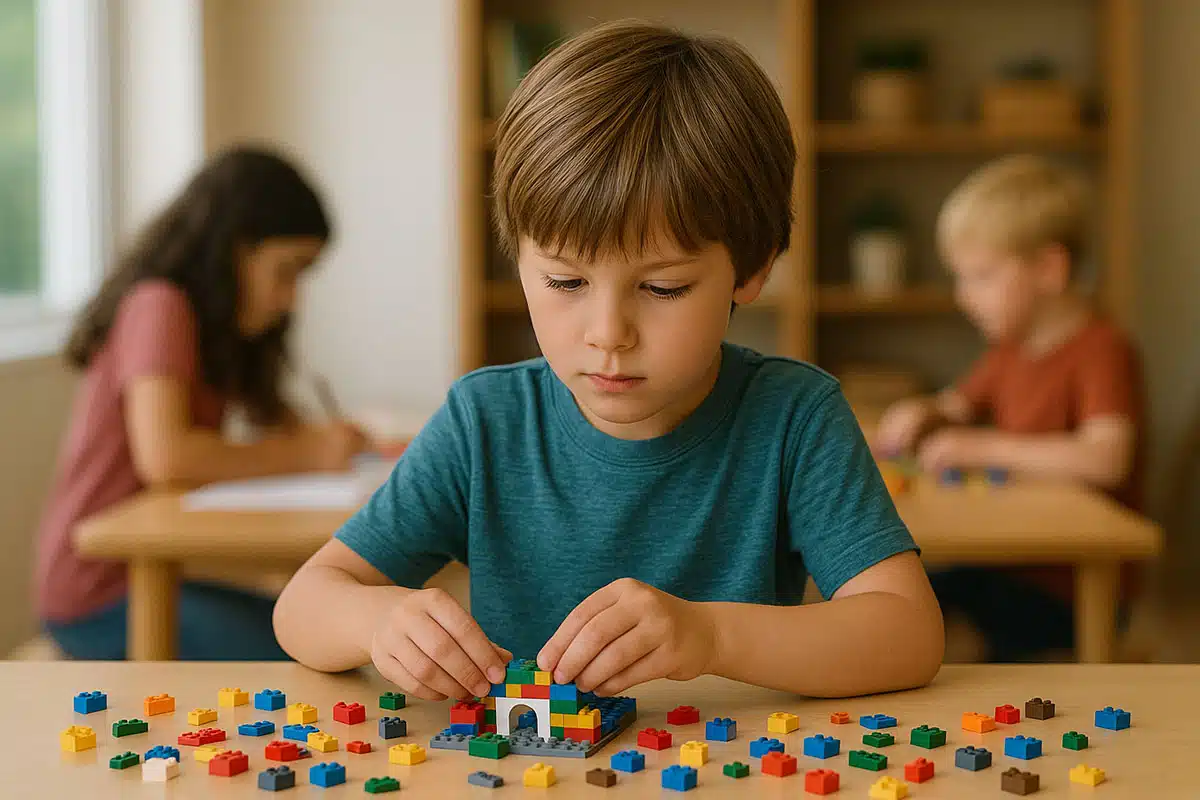
What ADHD Really Feels Like: A Day in the Life of a Distracted Mind
Step inside a child’s mind with ADHD to understand their daily struggles, challenges, and hopes—told with compassion and insight.

When the final school bell rings and summer break begins, most kids celebrate the freedom ahead. But for many neurodivergent children, especially those with autism or social anxiety, this time of year can bring more uncertainty than excitement. The familiar routines fade. Daily interactions with classmates disappear. And the structured support systems they rely on go temporarily silent.
While the break from academic pressure is often welcome, the sudden change can create unintended social gaps that make it harder for some kids to stay connected, practice communication skills or maintain emotional progress made during the school year. At Pediatric Consultations, we understand the challenges that summer can bring for children who thrive on structure, routine and consistent social engagement. The good news? With a thoughtful approach, summer can still be a time of growth and connection.
For neurodivergent children, school is not just about learning. It is also a a built-in environment for practicing social interactions, following predictable routines and building self-confidence. When that structure disappears, children with autism or social anxiety may feel disoriented, withdrawn or emotionally reactive.
Some children may miss their peer groups but not know how to express it. Others may struggle with the transition and retreat into solitary routines. Left unaddressed, these social gaps can widen by fall, making the return to school more difficult.
That is why summer needs more than just a schedule. It needs intention.
Create Predictable Opportunities for Interaction
Kids with autism or anxiety often benefit from knowing what to expect. Rather than spontaneous playdates, try scheduling regular social time in advance. This could be a weekly library program, a familiar camp or a recurring meetup with a trusted peer. Consistency helps reduce anxiety and builds confidence.
Lean Into Special Interests
Summer is the perfect time to tap into your child’s interests. Does your child love trains, drawing, coding or animals? Look for local clubs, hobby-based camps or classes centered around those passions. Shared interests provide natural conversation starters and reduce social pressure.
Use Low-Stress Social Settings
Traditional group activities can feel overwhelming. Instead, try one-on-one settings or quieter environments like nature walks, art studios or board game cafés. These can offer social practice without sensory overload.
Practice Social Scripts and Roleplay at Home
For kids who struggle with social nuance, summer offers time to build skills without the pressure of school. Practice greetings, conversations and transitions in a safe setting. Use visual supports or roleplay to reinforce these interactions.
Work on Emotional Readiness for Fall
Talk with your child about the upcoming school year early and often. Visiting the school, walking through the daily routine, or even reconnecting with teachers through summer emails or a brief visit, can ease the back-to-school transition. For teens, encourage journaling or using visuals to express hopes or concerns.
Remember that meaningful connection does not have to look like large group play or nonstop talking. Sometimes, it is sitting beside a friend building Legos. Or reading quietly next to a cousin on a porch swing. Respect your child’s comfort zone while gently encouraging growth. Progress can happen in stillness.
At Pediatric Consultations, we believe summer can be both a break and a bridge. With compassion and a bit of planning, parents can help their children maintain their social and emotional momentum, ensuring they do not just survive summer, but step confidently into fall.

Step inside a child’s mind with ADHD to understand their daily struggles, challenges, and hopes—told with compassion and insight.

Youth sports injuries can affect more than the body. They also impact mental health. Here is how to support full recovery.

Due to a sudden serious and ongoing medical issue, Dr. Peter Halas has closed his Pediatric Consultations practice.
Dr. Halas is deeply grateful for the trust, kindness and connection shared with patients and families throughout the years. It has been an honor to care for your children and to be part of your lives.
For any ongoing medical needs or referrals, please contact your primary care provider. Dr. Halas wishes each of you continued health and happiness.